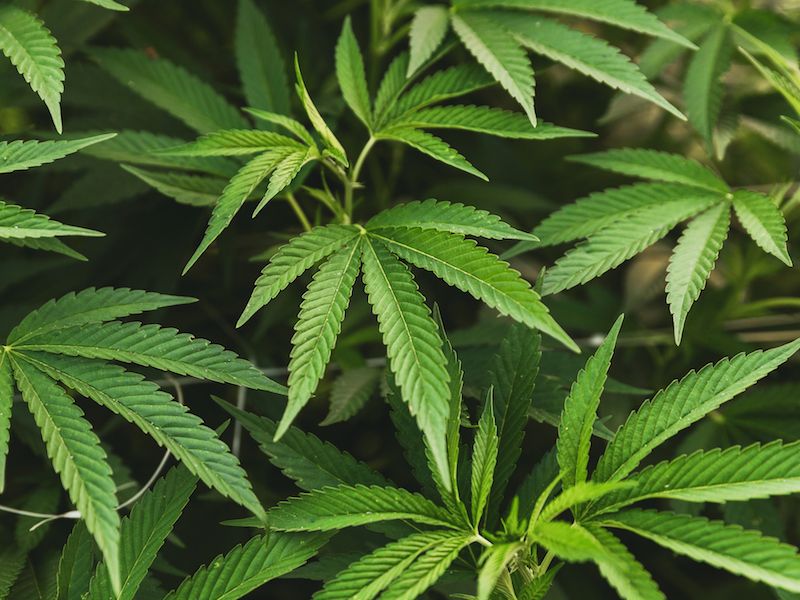
Public opinion surrounding marijuana and cannabinoids have transformed incredibly in the past several decades. Many states currently permit the use of marijuana, THC, or cannabinoid products for medicinal applications. A decade ago it would have been unimaginable for marijuana to be legal for recreational use but some states have even passed this law.
A group of compounds derived from the cannabis plant (the marijuana plant, essentially) are called cannabinoids. In spite of their recent legalization in certain states, we’re still learning new things about cannabinoids. We often think of these particular compounds as having universal healing properties, but current research implies there could also be negative impact including a strong link between cannabinoid usage and the development of tinnitus symptoms.
There Are Several Types of Cannabinoids
Today, cannabinoids can be used in many forms. It isn’t just weed (or ganja, or refer…..ok, there are plenty of nicknames for marijuana so let’s move on). Pills, oils, vapors and other variations of cannabinoids are currently available.
The varieties of cannabinoids available will vary state by state, and under federal law, many types are still illegal if the THC content is more than 0.3%. So it’s still normal for people to be very careful about cannabinoids.
We still need more study and experience before we will truly comprehend the long term and side effects of cannabinoids. Some new research into how cannabinoids influence your hearing is a perfect example.
New Studies Into Cannabinoids And Hearing
Whatever you want to call it, cannabinoids have long been associated with improving a wide range of medical conditions. Based on evidence that is anecdotally available, conditions such as vertigo, nausea, seizures, and many more appear to be helped by cannabinoids. So could cannabinoids assist with tinnitus? That’s what researchers decided to figure out.
Tinnitus may actually be triggered by cannabinoid use, as it turns out. According to the research, more than 20% of study participants who used cannabinoid products reported hearing a ringing in their ears. And these participants had never had tinnitus symptoms before the study. Furthermore, marijuana users were 20-times more likely to report having tinnitus symptoms after 24 hours.
Added research indicated that marijuana use could exacerbate ear-ringing symptoms in those who already have tinnitus. This basically means, there’s some pretty compelling evidence that tinnitus and cannabinoids don’t really mix very well.
How Cannabinoids worsen tinnitus
There are a couple of tangible ways in which cannabinoids can make your tinnitus experience worse. First off, the incidents of tinnitus symptoms can get more frequent, you may notice the ringing or buzzing in your ears more frequently. Cannabinoids can also cause tinnitus symptoms to become more intense. More intense ringing that can be harder to dismiss can be the result.
The study also appears to suggest that cannabinoids can cause the development of initial tinnitus symptoms. Or, said another way: after you start using cannabinoids you might start to experience tinnitus symptoms even if you had no symptoms before.
Unclear Causes of Tinnitus
We know there is a connection between tinnitus and certain triggers but we’re still uncertain what the actual root causes are. That cannabinoids can have an affect on the middle ear and on tinnitus is fairly clear. But it’s far less obvious what’s causing this impact.
But we are aware that marijuana is one of the few frequently used mood-altering substances that brings about tinnitus (alcohol, for example, hasn’t been shown to have a direct connection to tinnitus).
Research, unquestionably, will continue. People will be equipped to make a practical choice concerning which of the many kinds of cannabinoid to go with as we gain deeper insight into their connection to tinnitus.
Beware The Miracle Cure
There has undeniably been no shortage of marketing hype concerning cannabinoids lately. That’s partly because perceptions are transforming about cannabinoids (and, it could also mean that people are attempting to move away from opioid use). But cannabinoids can and at times do produce undesirable effects, based on this new research, and this is particularly true concerning hearing.
You won’t be able to avoid all of the cannabinoid enthusiasts and evangelists in the world, the marketing of cannabinoids has been extremely assertive.
But tinnitus and cannabinoids are clearly linked based on this research. So regardless of how much advertising you see for CBD oils, if you’re worried about tinnitus, you should most likely keep away from them. The connection between cannabinoids and tinnitus symptoms has been quite securely demonstrated by the research, so it’s worth exercising a little caution.